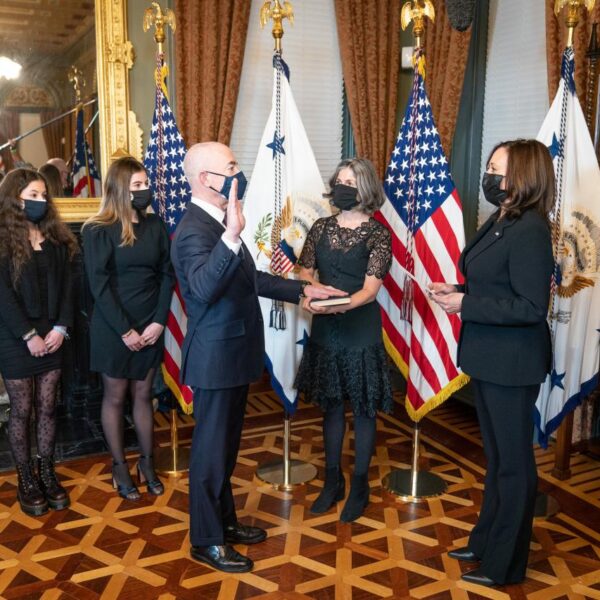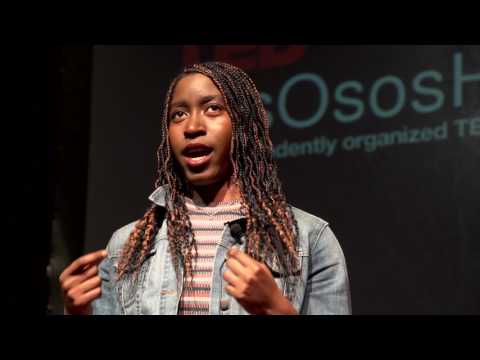Back to School – Going Beyond the ABCs
In an EMS briefing titled “Back to School: Going Beyond the ABCs,” experts gathered to address the pressing challenges faced by K-12 students as they return to school amid the ongoing aftermath of the COVID-19 pandemic. The briefing highlights various issues that have come to the forefront, including teacher shortages, learning gaps, and the evolving educational landscape.
Challenges at Hand: Teacher Shortages and Learning Gaps
One of the most significant challenges is the shortage of teachers across the United States. The pandemic led to a staggering exodus of 233,000 teachers from the profession, and this shortage is expected to particularly affect STEM (Science, Technology, Engineering, and Mathematics) education. As schools reopen, 41 states are bracing for a lack of teachers in key subjects, further exacerbating an already strained education system.
Another challenge is the learning gaps that students have experienced due to disruptions caused by the pandemic. On average, students lost about a third of their expected learning during the pandemic year, resulting in lower test scores, particularly pronounced in low-income districts.
Moreover, the educational environment has become increasingly polarized as parents and politicians seek to influence curriculum and school library content. This polarization raises questions about the nature of education and the role it plays in shaping the values and perspectives of young minds.
Expert Insights and Solutions
To address these challenges, the briefing featured several notable speakers:
Dr. Shaun Harper: A Provost Professor at the University of Southern California, he brings expertise from both the Rossier School of Education and the Marshall School of Business.
Kasey Meehan: As the Freedom to Read Program Director at PEN America, she offers insights into the evolving dynamics of educational content and censorship.
Dr. Tuan Nguyen: An assistant professor in the College of Education at Kansas State University, Dr. Nguyen focused on the critical issue of teacher shortages and the factors contributing to it.
Evelyn Aléman: Founder of “Our Voice: Communities for Quality Education,” an initiative that empowers parents advocating for quality public education.
Teacher Shortages: A Comprehensive Analysis
Dr. Tuan Nguyen delved into the issue of teacher shortages by presenting comprehensive data gathered by his team, available on the website “TeacherShortages.com.” The shortage is multifaceted, comprising vacant positions, under-qualified teachers, teacher supply decline, and teacher retention issues.
His data revealed that certain regions, particularly the South and Southeast, are grappling with the highest number of vacant positions. For instance, Florida reported nearly 5,000 vacant positions. These shortages are not limited to vacancies; an estimated 160,000 underqualified teachers are also contributing to the problem.
The decline in teacher supply is a concerning trend, with a significant drop in enrollment and completion of teacher prep programs. This trend is even more pronounced for STEM teachers. Additionally, teacher retention rates have plummeted, with COVID-19 exacerbating the attrition rate, ranging from 12% to 22% in various states.
Looking Ahead
While challenges persist, understanding the complex factors behind teacher shortages, learning gaps, and polarization is the first step toward developing solutions. The speakers at the briefing provided valuable insights that will help educators, policymakers, and parents work collaboratively to ensure a quality education for all students. As the educational landscape continues to evolve, addressing these issues is crucial for the holistic development of the next generation.
Dr. Shaun Harper’s Insights on Politicized Environment in Education
Dr. Shaun Harper, a Provost Professor at the University of Southern California Rossier School of Education and the USC Marshall School of Business provided a crucial perspective on the increasingly politicized environment students are facing in schools. He discussed the challenges surrounding diversity, equity, and inclusion (DEI) efforts and offered guidance on how to report on these attacks effectively.
The Scope of Politicized Attacks
Dr. Harper highlighted the alarming trend of book bans and suppression of content related to LGBTQ individuals and families. Numerous districts across the United States have banned books that promote diversity and inclusivity. Additionally, influential works by authors of color, including Tony Morrison, have been removed from school and public library shelves.
The politicization extends beyond books. Laws targeting critical race theory (CRT) have been introduced in 44 states, despite CRT not being a part of the K-12 curriculum. These laws, often based on misinformation, aim to restrict the teaching of America’s racial history and present, further hampering DEI efforts in schools. Dr. Harper emphasized that even states without enacted legislation may still face local-level bans.
In higher education, funding cuts and restrictions on DEI initiatives have impacted cultural centers and multicultural programs. Florida’s governor’s ban on public spending for DEI initiatives in colleges and universities serves as a blueprint for similar actions in other states.
Challenging Misinformation
Dr. Harper emphasized the importance of challenging misinformation and logic flaws perpetuated by those opposing DEI efforts. He provided several examples of these logical flaws and urged journalists to engage with educators to gather their perspectives. Many teachers have expressed that they lack the training to address these topics effectively and responsibly.
He suggested that journalists interview both educators and young people to get accurate insights into what is happening in schools. Dr. Harper shared that even his own third-grade nephew recognized the disparities between the rhetoric surrounding DEI and the actual classroom realities.
Countering Attacks and Building Defenses
Dr. Harper revealed initiatives undertaken by the USC Race and Equity Center to counteract these attacks on DEI. They have created the National DEI Defense Commission, a group of experts analyzing the situation in K-12 schools and higher education. They also launched the National DEI Defense Fund to support communities affected by book bans and other DEI-related restrictions.
Finally, Dr. Harper called on journalists to use their platforms responsibly to counter misinformation and promote accurate reporting on DEI initiatives in schools and higher education institutions. He shared resources for further engagement and encouraged collaboration to address the challenges posed by the politicization of education.
Kasey Meehan on Book Bans and Censorship
Kasey Meehan, the Freedom to Read Program Director at PEN America, provided insights into the increasing prevalence of book bans and censorship in educational institutions. She emphasized the importance of understanding the context and factors driving these bans while offering recommendations to counteract them.
The Ed Scare and Book Bans
Meehan introduced the concept of the “Ed Scare,” a campaign aimed at suppressing specific viewpoints and concepts in educational institutions. This campaign relies on authoritarian tactics to censor books, restrict access to information, and undermine the roles of educators and administrators. PEN America has been actively engaged in countering these efforts through research, advocacy, and coalition building.
Defining Book Bans
Meehan outlined PEN America’s definition of book bans as instances where access to a book is either restricted or diminished, either temporarily or indefinitely. She highlighted the fact that many of the books targeted for bans are intended for young adult and middle-grade audiences, challenging the notion that these materials are inappropriate for students.
Factors Influencing Book Bans
Meehan explained that book bans are influenced by both groups and legislation. She identified several organizations, such as Moms for Liberty and Parents Rights in Education, that are actively involved in censorship efforts. These groups, along with legislation in various states, contribute to the atmosphere of censorship and intimidation in educational settings.
Legislation and Challenges
Meehan provided examples of recent legislation that has impacted book bans and censorship. She mentioned the Florida legislation that bans certain instructional topics, including sexual orientation and race-related discussions. Similar legislation has emerged in states like Missouri, Utah, Texas, and Iowa. The replication of legislation across states highlights the nationwide trend of suppressing free expression in schools.
Upcoming Challenges and Strategies
Meehan discussed the challenges expected in the upcoming school year, including continued legislative pressures, district-level censorship efforts, and litigation against censorship laws. She stressed the importance of coordinated efforts to resist book bans and censorship and highlighted student activists as leaders in defending the freedom to read.
In summary, Meehan offered recommendations for defending the freedom to read, including staying informed, challenging misinformation, advocating for free expression in communities, participating in elections, volunteering, and supporting organizations like PEN America that work to protect students’ right to access diverse perspectives and information.
Evelyn Aléman on Education Advocacy and Parent Perspectives
Evelyn Aléman, founder of Our Voice: Communities for Quality Education, shared insights from her initiative that represents parents and students advocating for quality education in LA Unified School District. She emphasized the importance of understanding and addressing the unique challenges faced by Latino immigrant and indigenous families.
Advocating for Quality Education
Our Voice was established to address the lack of representation of Latino and indigenous immigrant families in education conversations. Through social media platforms like Facebook and Instagram, the initiative aims to provide these families with critical information and resources related to education.
Parent Concerns and Safety
Aléman highlighted the concerns of Latino parents regarding safety in schools. While mainstream media coverage often addresses different aspects of safety, Latino parents are primarily concerned about safety from drugs, awareness campaigns, and the presence of school police on campuses. These parents live in communities with high crime rates, homelessness, and drug issues, affecting their perceptions of safety and student attendance.
Challenges Faced by Immigrant Families
Evelyn pointed out that many Latino immigrant families face challenges related to multi-generational households, chronic illnesses, and COVID-19. Many students contract COVID-19 in the classroom and bring it home to their families, affecting their health and well-being.
Advocacy for English Language Learners and Dyslexia
The initiative focuses on advocating for English language learners and early detection of dyslexia. Latino parents face barriers in accessing resources and advocating for their children’s needs, particularly when language barriers and indigenous backgrounds are involved.
Transition to Post-High School
Another key issue addressed by Our Voice is the transition to post-high school opportunities. The initiative questions the support systems in place for students graduating from high school and needing guidance for pursuing higher education or technical careers. The insufficient number of counselors per student and the underrepresentation of Latino students in higher education institutions were also highlighted.
Advocacy Efforts and the Need for Representation
Aléman emphasized that the stories and experiences of Latino immigrant and indigenous families are often overlooked by mainstream media and even some advocacy groups. Our Voice aims to amplify these voices and ensure that the unique challenges faced by these families are recognized and addressed. The initiative’s goal is to tell the truth to those in positions of power and make lasting changes in education policies that benefit all students.
Advocating for Quality Education and Parent Perspectives in Education
In a recent virtual conference focused on education and equity, several speakers shed light on critical issues affecting the educational landscape, ranging from the challenges of remote learning during the pandemic to advocacy efforts aimed at improving the quality of education for all students. Let’s delve into the insights shared by these speakers.
Understanding the Impact of Remote Learning
Dr. Lisa Harper, a renowned educator and expert, started the discussion by delving into the impacts of remote learning on students during the pandemic. She emphasized that while remote learning allowed for continued education, it also highlighted the digital divide and exacerbated existing inequities. Students from marginalized communities faced obstacles such as lack of access to technology and internet connectivity, resulting in disparities in learning opportunities. Dr. Harper stressed the need for comprehensive solutions to bridge this gap and ensure equal access to quality education.
Addressing Educational Disparities Through Policy and Advocacy
Sunita Sohrabji, Managing Editor at India-West, joined the conversation to discuss the advocacy efforts and policy changes necessary to address educational disparities. She highlighted the significance of disaggregated data, which helps identify and target the specific needs of underserved communities. Sohrabji emphasized that policies should be designed with equity in mind, focusing on the equitable distribution of resources and educational opportunities. She also stressed the importance of community engagement and collaboration to drive meaningful change in education.
Combatting Censorship and Book Bans
Kasey Meehan, Freedom to Read Program Director at PEN America, shifted the conversation towards the growing issue of book bans and censorship in public schools. Meehan shed light on a national campaign known as the Ed Scare, which seeks to suppress specific viewpoints and concepts from educational institutions. She discussed the alarming rise in book bans targeting diverse voices, particularly in literature intended for young adult audiences. Meehan highlighted the need for coordinated efforts to resist these bans and protect students’ freedom to read and engage critically with literature.
Amplifying Parent Voices for Quality Education
Evelyn Aléman, founder of Our Voice: Communities for Quality Education, shared her perspective as a parent advocate. Aléman’s initiative represents Latino immigrant and indigenous families, focusing on their unique challenges and needs within the education system. She emphasized the importance of safety in schools for these families, addressing issues such as drugs and COVID-19. Aléman highlighted the lack of representation and access to critical information for these families, underscoring the need to amplify their voices and experiences.
Advocacy Initiatives for Equitable Education
Aléman presented a list of critical issues her initiative is advocating for, including prevention campaigns for drug awareness, redefining the role of school police, addressing COVID-19 safety concerns, supporting English language learners, and early detection of dyslexia. She also emphasized the importance of preparing students for post-high school opportunities and increasing the number of counselors to support students’ needs.
Uniting for Equitable Education
The conference illuminated the pressing need for comprehensive efforts to address educational disparities and create an equitable learning environment for all students. Speakers underscored the importance of data-driven policies, community engagement, and collaborative advocacy initiatives. By amplifying marginalized voices and centering their experiences, progress can be made toward dismantling barriers to quality education and ensuring a brighter future for all learners.
#BackToSchool #EducationChallenges #TeacherShortages #LearningGaps #EquitableEducation #RemoteLearning #DigitalDivide #EducationalDisparities #PolicyChanges #BookBans #Censorship #ParentPerspectives #QualityEducation #StudentAdvocacy









